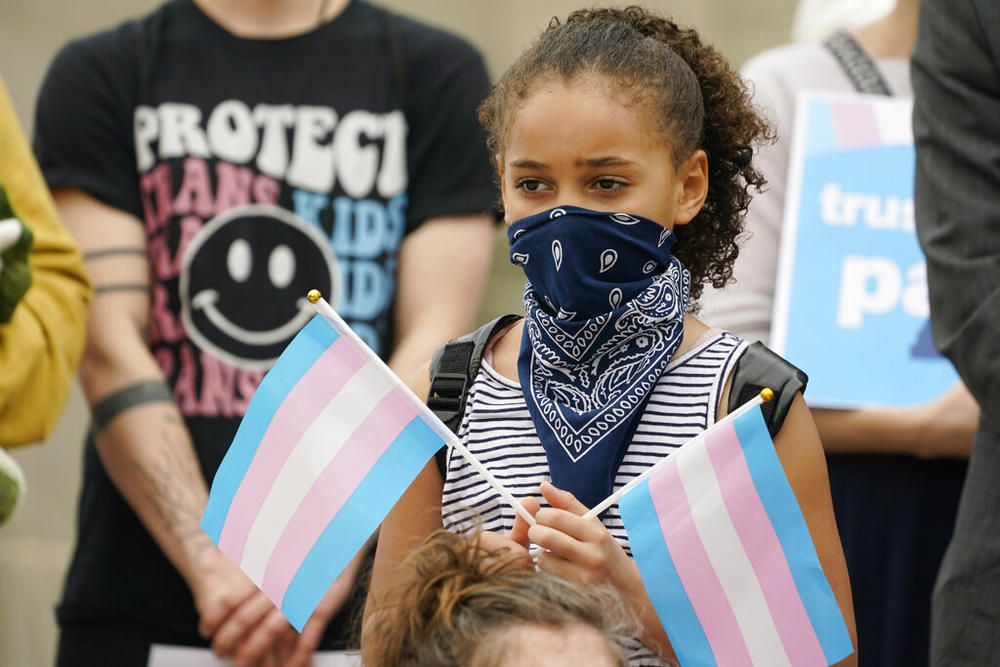
Caption
Four Georgia families are asking a judge to block the enforcement of a ban on gender-affirming healthcare.
Credit: AP Photo/Rogelio V. Solis

Four Georgia families are asking a judge to block the enforcement of a ban on gender-affirming healthcare.
Four Georgia families filed a lawsuit Thursday asking a federal court to bar the enforcement of Georgia's ban on gender-affirming healthcare.
The law, which will go into effect on July 1, bans doctors from performing gender-affirming care on transgender people under age 18. Gender-affirming care can include surgeries and hormone therapy.
The law, also known as Senate Bill 140 allows doctors to prescribe puberty blockers for transgender youth. But some doctors and activists say long-term use of puberty blockers may not be safe and that they need to be followed up with hormone therapy.
The American Civil Liberties Union (ACLU), one of three organizations and two law firms listed on the lawsuit, said allowing puberty blockers while banning hormone therapy is a "misguided" choice that can cause harm.
"Puberty blockers act as a bridge to the next decision point for parents, youth, and their doctors," the ACLU said in a news release. "Allowing transgender adolescents the use of puberty blockers while banning them from receiving hormonal care is constructing a bridge to nowhere."
The plaintiffs, who are using pseudonyms, say the law strips them of their right to make unique decisions about their own children's health care. They also say transgender youth are one of the most "vulnerable" populations.
Researchers from across the country say that transgender youth experience higher rates of suicidal ideation than cisgender youth.
"This law is targeting transgender youth, their families, and the providers who are following the standards of care," plaintiff Emma Koe said. "It is taking away my right as a parent to decide what medical care is best for my daughter. Having access to gender-affirming care means my daughter can be the girl she has always known she is. She can grow, develop, and live a happy, authentic life just like any other child in Georgia."
A similar ban in Arkansas was struck down by a federal judge on June 20. The judge said the law could cause harm to minors and violates the First, Fifth and 14th amendments of the U.S. Constitution.
The plaintiffs in the Georgia lawsuit are represented by the Southern Poverty Law Center (SPLC), the ACLU of Georgia (ACLU-GA), and the Human Rights Campaign Foundation (HRC), and the law firms O’Melveny & Myers LLP and Caplan Cobb LLP law firms. The lawsuit was filed in the United States District Court for the Northern District of Georgia
Leaders of the Georgia Department of Community Health and the Georgia Composite Medical board were named as defendants in the lawsuit. GPB News contacted both organizations. The Georgia Department of Community Health declined to comment and the Georgia Composite Medical Board did not respond.